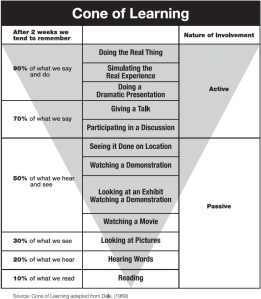 I read a lot, and I read from all over the proverbial map–current news (and weather, too), Christian sources, secular sources, blogs on WordPress and Substack, and others that cross my path, and also from a plethora of other online sources, and from emails I receive daily from news sources. I usually start my reading early in the morning from emails from the news sources (Christian and secular) that start arriving during the early morning hours. To say I read them “word-for-word” would not be accurate. I scan most for titles or opening paragraphs, and I look for topics that pique my interest. I delete a lot without reading them, too. I do usually end up reading a few articles. I doubt I retain in memory a lot of what I have read, but I do pick up pointers, and some even lead to topics for blog posts that I end up publishing.
I read a lot, and I read from all over the proverbial map–current news (and weather, too), Christian sources, secular sources, blogs on WordPress and Substack, and others that cross my path, and also from a plethora of other online sources, and from emails I receive daily from news sources. I usually start my reading early in the morning from emails from the news sources (Christian and secular) that start arriving during the early morning hours. To say I read them “word-for-word” would not be accurate. I scan most for titles or opening paragraphs, and I look for topics that pique my interest. I delete a lot without reading them, too. I do usually end up reading a few articles. I doubt I retain in memory a lot of what I have read, but I do pick up pointers, and some even lead to topics for blog posts that I end up publishing.
I sometimes wonder just how much of the information I read actually ends up being retained in my memory. The human mind has an amazing capacity for memory.
In an article published on March 18, 2021 titled, “How much information do you remember from what you read 2 weeks ago?”, the article states, “A person remembers an average only 10% of the content that the person read 2 weeks after” (quote source here). The article also comes with a couple of interesting graphs (and I like visuals like graphs). Here are two of those graphs and they are explained in the article:


In an article titled, “What is the Memory Capacity of the Human Brain?” by Paul Reber, Ph.D., professor of psychology at Northwestern University, he states:
The human brain consists of about one billion neurons. Each neuron forms about 1,000 connections to other neurons, amounting to more than a trillion connections. If each neuron could only help store a single memory, running out of space would be a problem. You might have only a few gigabytes of storage space, similar to the space in an iPod or a USB flash drive. Yet neurons combine so that each one helps with many memories at a time, exponentially increasing the brain’s memory storage capacity to something closer to around 2.5 petabytes (or a million gigabytes). For comparison, if your brain worked like a digital video recorder in a television, 2.5 petabytes would be enough to hold three million hours of TV shows. You would have to leave the TV running continuously for more than 300 years to use up all that storage.
The brain’s exact storage capacity for memories is difficult to calculate. First, we do not know how to measure the size of a memory. Second, certain memories involve more details and thus take up more space; other memories are forgotten and thus free up space. Additionally, some information is just not worth remembering in the first place.
This is good news because our brain can keep up as we seek new experiences over our lifetime. If the human life span were significantly extended, could we fill our brains? I’m not sure. Ask me again in 100 years. (Quote source here.)
Obviously, we forget a whole lot more than we remember, but the brain has an amazing capacity to remember (even what we think we forget) from all of the “storage space” available in the human brain as mentioned above.
I’ve seen a funny meme several times now on Facebook that states, “My ability to remember song lyrics from the 80s far exceeds my ability to remember why I walked into the kitchen.” We can all smile at that statement, but it just goes to show how much we retain in our memory that we had no clue is hidden in it. Even a smell of something (like a favorite food or a particular fragrance) can conjure up memories even from the distance past.
The Bible speaks of both remembering and forgetting. The following article by GotQuestions.org addresses both, and specifically answers the question, “Is forgetting the past biblical?”:
The apostle Paul ends a section in Philippians 3 by saying, “One thing I do: Forgetting what is behind and straining toward what is ahead, I press on toward the goal to win the prize for which God has called me heavenward in Christ Jesus” (verses 13–14). Is Paul instructing us to forget everything that ever happened before we met Christ? Is this a command to purge our minds of all memories?
 It is important to consider the passage that precedes these words. Paul had just listed all his religious qualifications that, to the Jewish mind, were of supreme importance. He then states, “I consider everything a loss because of the surpassing worth of knowing Christ Jesus my Lord” (verse 8). Paul is making the point that no fleshly accomplishment matters in comparison with knowing Christ and trusting in His righteousness alone for salvation (Ephesians 2:8–9). Regardless of how good or how bad we may have been, we must all come to Christ the same way: humble, repentant, and undeserving of His forgiveness (Romans 5:8; Titus 3:5).
It is important to consider the passage that precedes these words. Paul had just listed all his religious qualifications that, to the Jewish mind, were of supreme importance. He then states, “I consider everything a loss because of the surpassing worth of knowing Christ Jesus my Lord” (verse 8). Paul is making the point that no fleshly accomplishment matters in comparison with knowing Christ and trusting in His righteousness alone for salvation (Ephesians 2:8–9). Regardless of how good or how bad we may have been, we must all come to Christ the same way: humble, repentant, and undeserving of His forgiveness (Romans 5:8; Titus 3:5).
The word forgetting in this passage means “no longer caring for, neglecting, refusing to focus on.” Our memories store millions of pieces of information gained through our senses since birth. Some experiences are impossible to forget, and any effort to forget them only makes them more prominent. Paul is not advising a memory wipe; he is telling us to focus on the present and the future, rather than the past.
It’s easy to “live in the past.” Whether it’s a past victory that our minds continually replay or a past defeat that hangs over us like a shroud, it needs to be left in the past. Nothing hinders present service quite like being mired in another time. Modeling Paul’s forgetfulness means we count the past as nothing. We cut the strings that tie us to that bygone moment. We refuse to allow past successes to inflate our pride. We refuse to allow past failures to deflate our self-worth. We leave it behind and instead adopt our new identity in Christ (2 Corinthians 5:17).
We are not to forget everything, however, in the sense of being oblivious to it. In fact, there are many times God instructs us to remember. In Deuteronomy 9:7, Moses tells the Israelites to “remember this and never forget how you aroused the anger of the Lord your God in the wilderness. From the day you left Egypt until you arrived here, you have been rebellious against the Lord.” We are encouraged to remember all God has done for us (Psalm 77:11; 103:2), others who are suffering for Christ’s sake (Hebrews 13:3; Colossians 4:18), and what we were before Jesus saved us (Ephesians 2:11–12; 1 Corinthians 6:9–11). But the remembering should be to the glory of God and for our spiritual benefit. If we are cleansed by the blood of Christ, then no judgment remains for past failures (Romans 8:1). If God chooses not to remember our past sins (Hebrews 8:12), we can choose to set them aside as well and embrace the future He promises to those who love Him (Romans 8:28; Ephesians 2:10). (Quote source here.)
In Psalm 103:1-5 (NKJV) David speaks about remembering God and all that he has done for us:
Bless the Lord, O my soul;
And all that is within me, bless His holy name!
Bless the Lord, O my soul,
And forget not all His benefits:
Who forgives all your iniquities,
Who heals all your diseases,
Who redeems your life from destruction,
Who crowns you with lovingkindness and tender mercies,
Who satisfies your mouth with good things,
So that your youth is renewed like the eagle’s.
That’s a very good place to start when our minds start remembering things that take us down a wrong path. I write this as much to myself as to anyone else reading this post. As Paul stated in Philippians 3:13-14 NIV): Brothers and sisters, I do not consider myself yet to have taken hold of it. But one thing I do: Forgetting what is behind and straining toward what is ahead, I press on toward the goal to win the prize…
For which God has called me . . .
Heavenward . . .
In Christ Jesus . . . .
YouTube Video: “New Day” by Danny Gokey:
